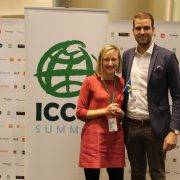Written by Paul Holmes
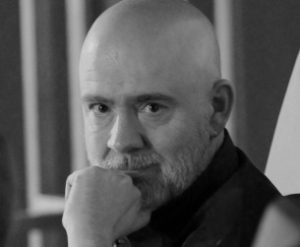
 @paulholmespr
@paulholmespr
A question of definitions, a time to stop sounding so defensive, and reasons to really celebrate creativity.
The morning after the presentation of this year’s Cannes Public Relations Lions, The Holmes Report and Ogilvy Public Relations hosted a breakfast meeting—open to all attendees at this year’s festival—to discuss the winning campaigns and the PR industry’s performance. What did we learn from the discussion?
Definitions are important—or maybe they don’t matter at all
Public relations is notoriously difficult to define.
It can mean anything from (the broadest, and our favored definition) anything that influences or impacts the relationship between an organization and any of the people with whom it interacts. It can mean getting coverage in the media—the definition many detractors and even some within the profession prefer (“we do so much more than just PR.”)
By the first definition, almost everything on show at Cannes this week was public relations (something the PR Council hints at with its #itsallpr hashtag). In fact, by the first definition all of marketing is just a subset of public relations: if PR is managing the relationship with everyone, marketing is the much smaller task of managing the relationship with consumers.
The definition that Cannes uses is, in fact, much closer to the former than the latter: “The definition of PR for the purpose of Cannes Lions is the creative use of reputation management by the building and preservation of trust and understanding between individuals, businesses or organisations and their publics/audiences.”
By this definition, a 30-second television commercial—if it built or preserved trust and understanding—would presumably be eligible for the PR category. So, by the way, would a smart business decision. The CVS Quits campaign, which won Platinum at the SABRE Awards in New York but was nowhere to be seen among the 79 PR winners at Cannes, is the perfect example of a change in corporate policy that built trust between an organization and its publics.
So clearly there is more to it than that. PR jury president Lynne-Anne Davis, in an interview with Arun Sudhaman, explained what the jury was focused on: “Creativity, innovation, freshness and ingenuity…. Earned trust through influence powered by authenticity…. Change. Change could be behavioral, or change in conversations, in minds, in lives, in societies, in laws…. And then ultimately we asked the question, ‘Why does this work matter?’”
Those are all excellent criteria for selecting award-worthy work, but none of them would exclude either of the examples—the hypothetical 30-second TV spot of the smart business decision—above. And those criteria leave room for debate about several of the winners, and just how big a role PR played in making them successful. That it leads to a very lively debate about whether the winning campaigns were examples of great campaigns (some of them, perhaps, made a little bit better by sprinkling on some PR) or examples of truly great PR.
“If you are on a jury, you want good work to win, regardless of whether it’s a good fit for the category,” explained Rory Sutherland, vice chairman of Ogilvy Group UK. “There’s a willingness to blur the line to see that happen.”
The answer to whether the line is too blurry is in many cases very much in the eye of the beholder:
- True Wetsuits, entered by TBWA/Hakuhodo in Japan, seemed to some observers to be a new product introduction that—because the product itself was so innovative—generated a large volume of media coverage. Was the creativity in the product itself, or in the communications campaign? If the latter, was this just a clever ad campaign amplified by PR?
- Similarly, Proud Whopper, entered by David Miami (with support from Alison Brod PR), appeared to some to be not much more than a cool packaging idea—wrapping the Whopper in rainbow colors to celebrate gay pride. On the other hand, it was a packaging idea that clearly impacted the relationship between the company and the LGBT community and earned the trust of many within that community.
- Even The Ice Bucket Challenge, which almost everyone agrees was a terrific concept and a powerful popular movement, raised questions. Did the award recognize the basic idea, and was it really PR? Did it fundamentally change the relationship between the ALS Society and its stakeholders, or was it entirely transactional. Was the PR element primarily about generating media coverage for a social media phenomenon?
It’s not clear that there is a right or wrong answer.
“PR is becoming the glue in a lot of integrated campaigns,” said Michael Frohlich, Ogilvy’s UK chief executive. “Does it matter that we don’t create the idea? One of the things we do is make someone else’s ideas even better. We can come up with the great idea, and we can make other people’s campaigns better. But clients are interested in integration.”
On the other hand, this seems like a strange time to be accepting a supporting role for PR. The things that PR has always been about—transparency, authenticity, credibility, engagement, conversation—are at the heart of successful marketing today, and that ought to create an opportunity for campaigns that are driven by a PR idea to win big at Cannes.
We certainly should not be looking at narrowing the definition of public relations to ensure that the winners all feel like “real” PR campaigns.
We do need to embrace the fact that public relations is an extraordinarily broad discipline, and that it can encompass an amazing variety of good winners. The PR Council—which represents PR agencies in the US—was prominent at Cannes with the #itsallpr hashtag, and does not seem overly concerned by the ambiguity.
“We don’t reconcile it, we take ownership of it,” said Kathy Cripps, president of the PR Council. “We say the umbrella is PR. All those other things are part of what PR should be. I think we should be very pleased with the way it’s going.”
We need to get past the numbers game
Depending on how you look at it PR agencies either won 10 Gold Lions in the PR category this year (out of the 17 awards) or three-and-a-half. So it was either a “breakthrough” year for the PR industry—a position adopted by several jury members and repeated in some media coverage—or yet another disappointment in which the PR industry was outperformed on its home turf by other disciplines.
To explain, as briefly as possible, only three of the Gold-winning campaigns were entered by PR agencies (Edelman, FleishmanHillard, and Australia’s Fuel Communications), which means that the PR agencies were clearly positioned as the “lead” agencies on those campaigns. Even the Grand Prix winning Always #Likeagirl campaign was entered jointly by MSLGroup and Leo Burnett—and so in the more pessimistic formulation counts as only half a win for our business.
Of the other winning campaigns, six featured PR firms in “supporting roles.” (And because of the way Cannes works, it is impossible to know whether those supporting roles were limited to generating earned media coverage for a campaign invented elsewhere, or included a genuine strategic partnership in the overall campaign).
That means all but three Gold winners were entered—in whole or part—by ad agencies or other “creative” shops (a term which, when used at Cannes or in the marketing services sector generally, appears to exclude PR agencies).
And perhaps that explains why the comments from the head of the PR jury—in this case, Davis—always seem slightly defensive, explaining that PR firms are submitting more (half of the 2,000 entries this year) and hailing a “breakthrough” year for the industry, as if the same word had not been used last year when Edelman, while not the official entrant, wascredited for its role for Chipotle’s “The Scarecrow.”
At some point, surely we just need to enjoy the fact that PR is getting more attention at Cannes.
“People here are talking about PR as much as any other category,” said Ogilvy’s Sutherland. “The people who should be worried are the people doing 30-second commercials. You’re television and they are the movies. Hollywood is where all the glamor is, but all of the interesting work these days is being done in television.”
And if PR is getting more attention, PR firms—the ones that are represented at the festival and the ones that are doing good word—will benefit.
“This is a great time for our industry,” said Ketchum president and CEO Rob Flaherty. “We are here. Marketing is a $500 billion business and we are a $15 billion part of it. We win just by being here. We are a challenger brand in this environment, we can double the size in the category.”
Doing good does well
There is an inherent bias in many awards competitions that favors campaigns for non-profit clients and good causes. In the PR industry in particular, professionals are cognizant that outsiders tend to view what we do with some suspicion, to believe that we are all accepting fat paychecks to “spin” for faceless corporations wreaking environmental havoc and tricking consumers into buying more of their hazardous products.
And so we pick award winners that show how PR can be used for good too. Which is how we get to a place where five of the Gold winning campaigns were for nonprofit causes and at least half of the remainder either promoted socially-responsible products or focused on companies associating themselves with good causes.
This is not necessarily a bad thing. After all, the best way to build a relationship with stakeholders is to do good deeds, to demonstrate that profits are not your only concern and to show that you care about the same issues your employees and consumers and communities do—a point made by Rob Flaherty at our meeting.
“I think there’s a bias toward campaigns that do both,” he added. “Campaigns that are great at social consciousness raising and drive sales.”
Having said that, there is a concern that PR could follow the path of advertising, which is strongly suspected of creating pro bono campaigns almost exclusively as “award bait.”
“If we were recognizing campaigns in service of the environment that have no impact on sales, that would be a problem for me,” Flaherty said. “We don’t want to create great campaigns just to win at Cannes, we want to use Cannes to help us do great work for our clients.”
On the other hand, there is a problem if the desire to recognize good works ends up excluding good work.
“There is a massive political element in the judging process,” Sutherland claimed. “You could produce a great campaign for the National Rifle Association or the confederate flag and it is never going to win at Cannes.”
Under the circumstances, it’s probably wise for entrants to focus on their most socially-conscious work, and not to waste their money on campaigns for tobacco clients or fracking. At the same time, it would be better if jurors recognized their bias, and perhaps gave a little more consideration to the fact that most people who hire ad agencies do so for crass commercial reasons are care about crass commercial results.
We need to celebrate creative talent
Last year, there was a lot of conversation about whether PR agencies could ever learn to craft Cannes-winning entries. The feeling was that PR firms did not understand how to use video—rather than the more traditional (in PR awards) written two-page summary—to really sell a campaign, and that they did not quite get the value of playing on the judges’ emotions with stories that made them laugh or (preferably) cry.
That concern had not dissipated this year: Ogilvy Public Relations chief executive and PR jury member Stuart Smith suggested that if the jury was more like a clinic—offering advice to entrants before they submitted—the results could have been quite different; PR firms might have presented their cases better, and non-PR firms could have avoided the impression that PR element of the campaign was an afterthought rather than a central part of the process.
But there was more focus this year on the different creative cultures at different agency types—and the concern that PR firms have never quite celebrated creativity with the same gusto as their counterparts in the ad industry.
It is, for example, not uncommon for an ad agency creative director who wins big at Cannes to go home and demand a hefty salary increase. Or, as Smith puts it: “Advertising people are rock stars.”
On the other hand, very few PR people have ever seen their salaries sky-rocket because of a SABRE Award or a Cannes Lion.
Gabriela Lungu is perhaps an exception. Her success winning awards at Romanian boutique agency The Practice secured her a job as chief creative officer at Weber Shandwick. That job only lasted about 18 months, and her subsequent experience was disheartening: “I spent six months looking for a job in PR and eventually I took a job with an advertising agency,” she told the group. “For PR, creative specialists are nice-to-have, not must-have.”
Perhaps that’s because PR has always viewed creativity as more of a collaborative process. Or perhaps, as Lara Leventhal, deputy managing director at Ogilvy PR London, suggested, it’s because “we don’t train our people to come up with the big brand idea.”
Ogilvy’s Smith recalled joining Burson-Marsteller in 1988, at which time the firm had a creative director, content production capabilities, and its own ad agency. “But somehow we got boxed into this uncreative narrow space.”
Fortunately, there are some signs that things are changing.
“At Ketchum that has changed a lot,” said Flaherty. “We have as much brand permission as anyone to come up with a campaign-leading idea, so we train our people to do that.” Last year, he said, the firm promoted nine people to partner, and five of them were creative directors.
“There’s more emphasis on research that leads to great creative ideas. In the past, we celebrated our global client leaders, but now it’s creative directors and content creators. When we get to the point where the biggest campaign idea in the world is created by our people, we will have to pay those people $1 million, and I will welcome that day when it comes.”
For others, it can’t come soon enough.
“I come here to see work that inspires me or makes me angry because I didn’t think of it,” said Caroline Dettman, chief creative and community officer at Golin. “This year, I was not that impressed with the work.”
That view was echoed by a number of PR professionals we spoke with later in the week, after they had an opportunity to review the winning entries in more detail.
Smaller firms have to find a way in
One possible explanation for that is that a lot of great PR work—created an executed by PR firms—is still not finding its way to Cannes.
“One thing that is not true about Cannes, people think the best of what we have done globally gets to be on the shortlist,” says Smith. “Are these 2,000 entries representative of our industry? It’s not representative of what we do. There are still some parts of our industry who think Cannes is not for them. But it’s a shop window. If we want to do more work with marketing, this is where there eyeballs are so this is where we have to be. It’s seven years in; get involved.”
One issue is that while the large global agencies have made a major commitment to Cannes—firms like Edelman, Weber Shandwick, FleishmanHillard, Ketchum, Ogilvy and MSLGroup had anywhere from 20 to 50 people at the festival this year—very few boutique PR firms are represented. There was only one person in the morning-after meeting from a small independent agency (although Smith was quick to point out that about half of the jury came from independent firms).
“Quite a few of our independent members have been sniffing around this year,” said Steve Miller, membership and partnership director for the UK’s PRCA and its international umbrella organization, ICCO. “They are looking around and they are learning how it works.”
Let’s hope they learn quickly. Only one of the PR Lions nominees came from the UK—a market that is famous for the creativity of its small and midsized PR shops.
Cripps, meanwhile, said that the PR Council has been encouraging similar participation from the US, but had encountered resistance because “it’s so expensive.”
Said Lungu: “Somehow our industry should support those smaller firms. Maybe we could have some process for selecting the top 10 campaigns from smaller independent agencies and find a way of helping them.”
If we want to continue raising the profile of our industry at the world’s leading festival of creativity, and if we truly believe that success at Cannes will help elevate the entire industry, that’s not a bad idea.
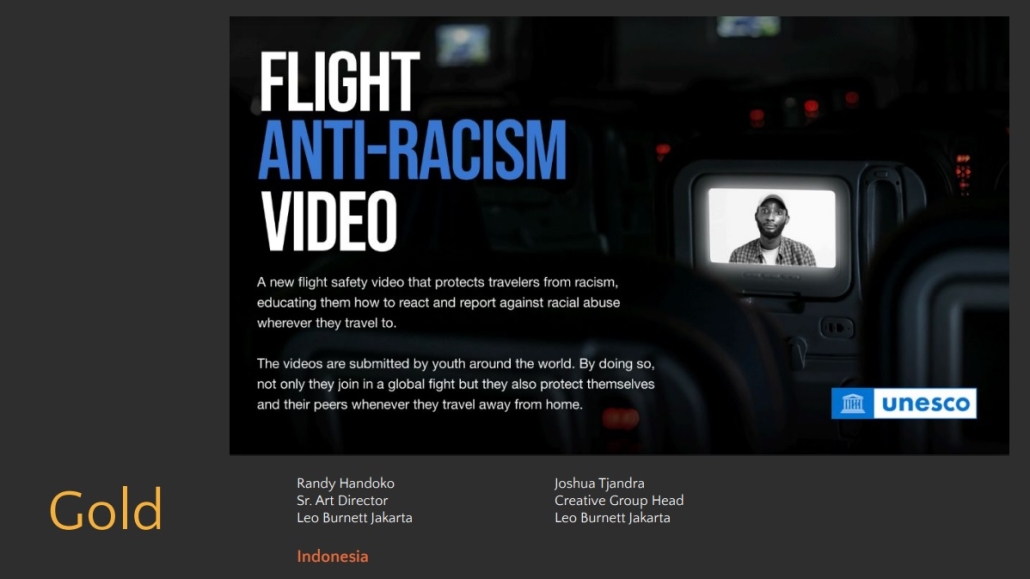 Indonesia’s Randy Handoko and Joshua Tjandra, creatives at Leo Burnett Jakarta, are the winners of this year’s Cannes Young PR Lions competition. The team from Colombia, Rony Saavedra and Manuel Barbosa Granados won Silver, and from Germany, Alexander Walter and Katharina Kiriakou claimed Bronze.
Indonesia’s Randy Handoko and Joshua Tjandra, creatives at Leo Burnett Jakarta, are the winners of this year’s Cannes Young PR Lions competition. The team from Colombia, Rony Saavedra and Manuel Barbosa Granados won Silver, and from Germany, Alexander Walter and Katharina Kiriakou claimed Bronze.

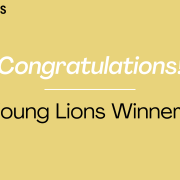
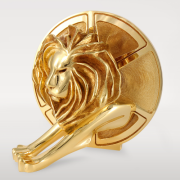

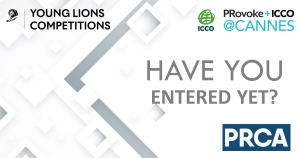 Key registration dates and information can be found on the respective PRCA websites.
Key registration dates and information can be found on the respective PRCA websites.



